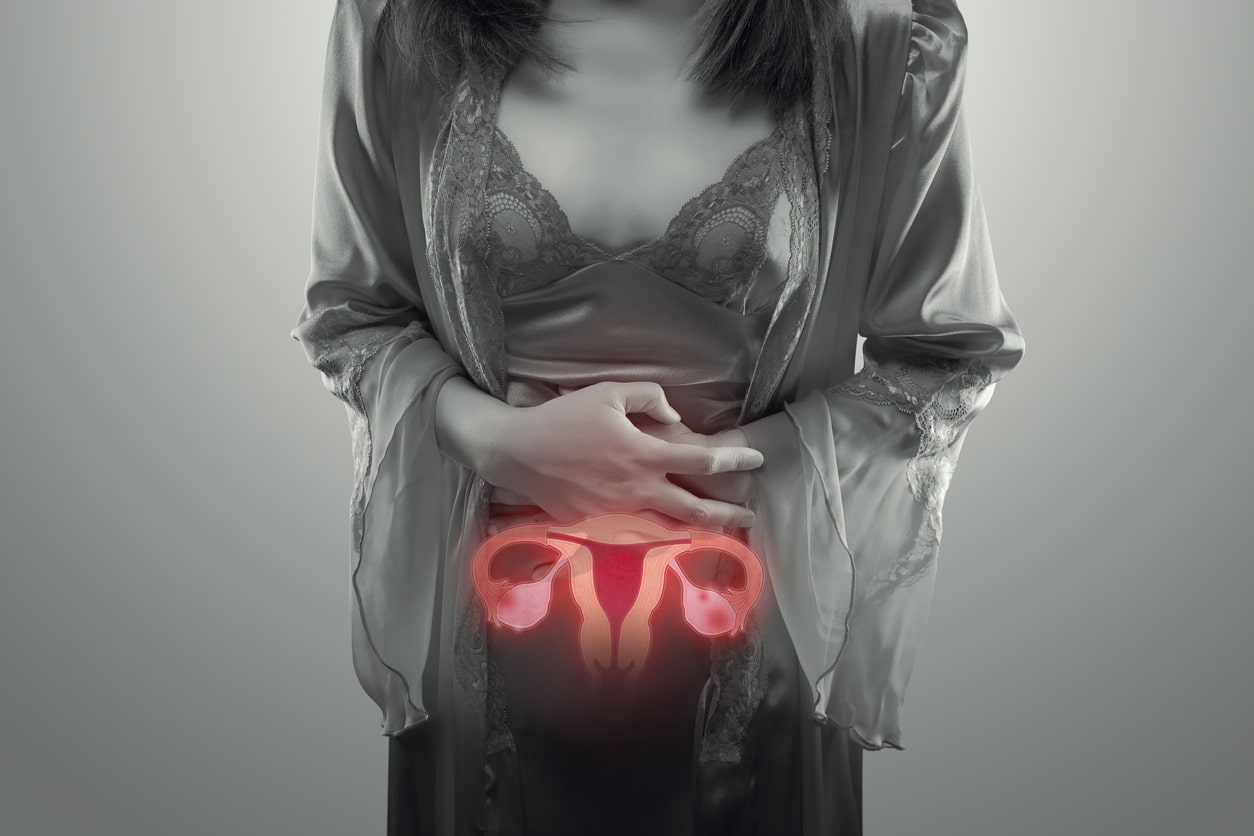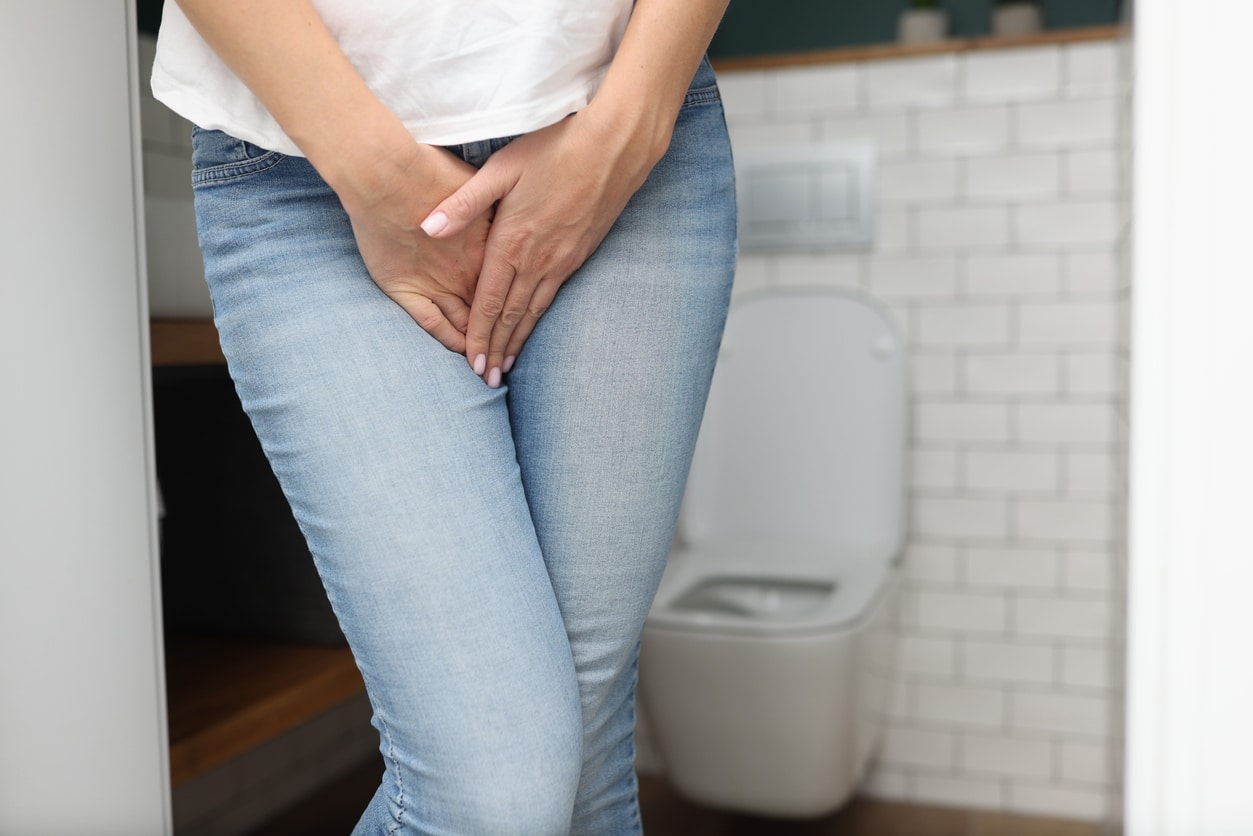An alternative to traditional surgery, a robotic hysterectomy is a cutting-edge technology utilizing the aid…

Is Urinary Incontinence a Normal Part of Aging?
Many women begin struggling with incontinence (bladder leakage) after pregnancy or with age. Even younger women, particularly those who are athletic, suffer from incontinence. In fact, bladder leakage occurs in one out of four women between the ages of 18 and 59.
Unfortunately, women don’t always seek help for bladder leakage. The University of Michigan’s Poll on Healthy Aging asked women between the ages of 50 and 80 what prevented them from seeking medical treatment for urinary incontinence. Almost a quarter of the women polled said they didn’t realize it was a health problem.
Incontinence, though common, is not an inevitable part of the aging process, and you shouldn’t have to live with it. We’re here to dispel common embarrassments about bladder leakage, and hopefully, empower you to reach out to a specialist about your treatment options.
What Causes Urinary Incontinence
Many women think that urinary incontinence is simply something that they have to learn to live with. However, this problem is a symptom of an underlying cause. Some common risk factors for developing bladder leakage include but are not limited to:
- Weak or overactive bladder muscles
- Weak pelvic floor muscles
- Damage to nerves caused by diabetes or Parkinson’s Disease
- Obesity
- Arthritis
- Pelvic organ prolapse
- Alzheimer’s Disease
Of course, incontinence isn’t always permanent. Short-term urinary incontinence can be a result of:
- Urinary tract infections
- Vaginal infections
- Constipation
Types of Urinary Incontinence
Urge Incontinence
Urge incontinence is leakage that happens when you have a strong urge to urinate. This type of incontinence sometimes starts with a normal need to pee that subsides and comes back as a stronger, more desperate feeling.
This cycle of needing to “go” and panicking (which only increases the need) can cause uncomfortable accidents and near misses. It also comes with a risk of dehydration, as many women are tempted into drinking less, thinking it will help them avoid accidents.
Stress Incontinence
Stress incontinence is leakage that happens unexpectedly when stress is put on your bladder. Common triggers include coughing, sneezing, and laughing. This type of incontinence usually occurs due to imbalances in coordination and abdominal muscle strength, which both help balance and regulate bladder control.
Stress incontinence is also more common with exercise and physical activity, as your pelvic muscles contract and relax as you move. Weak muscles in your core or bad technique can put added pressure on your bladder and urethra, leading to an accident.
When to See a Doctor
Although bladder leakage is common, it is not a normal part of aging. It is important to discuss any issues with your doctor and to not let embarrassment keep you from the help you need.
Your provider will start by asking you a series of basic questions about your symptoms and daily activities. Then, they may perform routine tests, such as a urinalysis or post-void residual measurement, or special testing, such as urodynamic testing, a cystogram, a cystoscopy, or a pelvic ultrasound.
The goal is to find the root cause and guide you through the treatment options that will work best for you.
Urinary Incontinence Treatment
There are several treatments for bladder leakage. The right option for you depends on the type of incontinence you’re experiencing as well as the extent of the symptoms and underlying causes. A combination of treatments may be needed.
Possible treatment options include:
- Behavioral treatments such as bladder training, double voiding, scheduled bathroom breaks, and fluid/diet management
- Medications
- Electrical stimulation
- Medical devices
- BOTOX® injections
- Nerve stimulators
If these treatments are not effective, your provider may recommend a surgical treatment, such as:
- Sling procedures
- Bladder neck suspensions
- Prolapse surgery
- Artificial urinary sphincter
A trusted provider will always discuss your options with you to determine the right course of action and make you as comfortable as possible during the entire process.
Are You Ready To Say Goodbye to Bladder Leakage?
Urinary incontinence is a very real problem for millions of people, but you don’t have to accept this common medical condition as a natural part of aging. If you or someone you love suffers from this condition, a visit to the doctor can be essential to both safeguarding ongoing health and quality of life.
Contact The Endometriosis Treatment Center of America to Explore Incontinence Options
If you feel like you’re living your life between bathroom breaks and you’re ready to do something about it, choose the best in Urinary Incontinence Treatment and Surgery. Make an appointment with the team at the Endometriosis Treatment Center of America for a consultation at our Lake Orion or Birmingham, Michigan locations.



